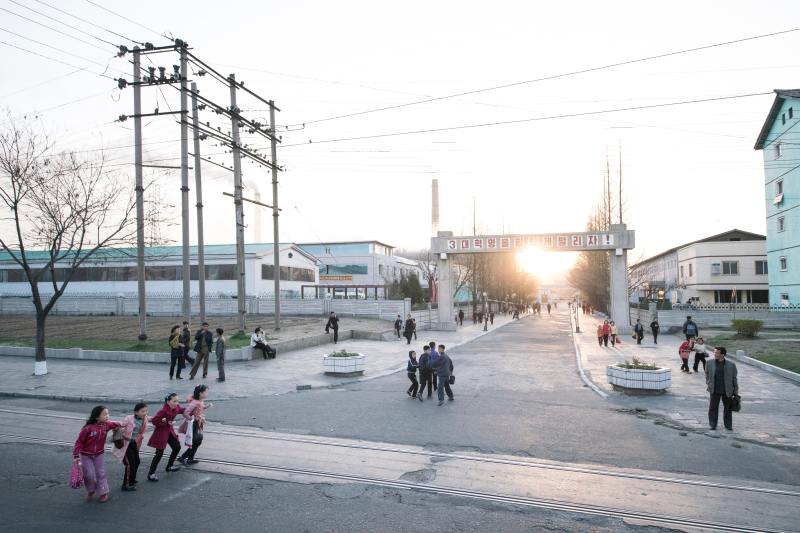
North Korea sent 2,000 security college students to its border making residents worried that they could be monitored.
In the earlier part of December, North Korea deployed a group of 2,000 security college students at the Sino-Korean border. The group is specially assigned to conduct an interview with struggling residents, Radio Free Asia reported. This particular mission "instills fear" in the residents in the area, the RFA said.
An official from a judicial agency in the northeastern province of North Hamgyong, speaking on the condition of anonymity for the sake of security, said the students were sent to talk to people to understand their present psychology.
"Here in North Hamgyong, the students have been distributed to places on the border like the city of Hoeryong and Musan county," the source said. "They've been assigned to neighborhood watch units of towns and villages and have started a project to understand how people here think."
"They conduct intensive interviews with people in household who have run out of food or who are unemployed," the source said.
The source also explained that the students tried to convince people to "believe" in Kim Jong Un's government, particularly its ability to weather the current economic crisis the country is facing.
"We know that they are trying to convince these people to believe in the party's ability to overcome the current economic crisis, and they are listening and trying to understand the difficulties that the residents have experienced since the border closure," the source said.
Extreme measures
North Korea recently imposed a harsh measure in keeping the borders to prevent people from crossing the boundaries that separate the nation led by Kim Jong Un from China.
In January, Pyongyang and Beijing closed their borders and suspended all transactions to prevent the spread of the virus. This resulted in negative effects to the country's economy, which already suffered from international sanctions placed against the government's nuclear goals.
Months after that, in April, the emergency quarantine posture was extended to the end of 2020. Later in the year, the country issued harsher measures, which involved authorizing soldiers to shoot anyone that comes within the 0.6 miles borders regardless of their reason to cross. Landmines were also placed to deter people from attempting to escape the communist country.
In November, to ensure that even smugglers and officials who support them are apprehended, Pyongyang deployed anti-aircraft units in certain parts of the borders. It also redefined "smuggling" as a "reactionary crime," and to drive its point publicly executed a convicted smuggler.
Monitored
Residents in the North Hamgyong province see the deployment of 2,000 college students to the borders in different ways. They believe that since the students will eventually become officers of the Ministry State Security, they are at risk of being monitored.
Since the students are attending the National Security College, a prestigious secret agent school, residents fear that they could be spied on at the deployment. They are afraid due to the spreading allegations about the school.
The school is the home for future secret policemen that serve as the eyes and ears to "Supreme Leader" Kim Jong Un. Reports reveal that the Ministry of State Security is assigned to eliminate rebellious elements in the country.
There were also allegations that added up to the fear of residents at the border. Rumors say that the secret police that serve as spies for Kim Jong Un have strategies to make someone disappear from political prison camps - something that Pyongyang denies.
Another judicial official, also speaking anonymously, revealed that about 500 students were also sent to a neighboring province, Ryanggang, to do the same thing.
While rumors say that the students were sent to alleviate the suffering of the residents by giving the needy among them 100,000 won ($12.50) to buy necessities like rice, it's more likely that they are there for something else.
"It's more likely that they were assigned to play a role in an important secret mission for the authorities, and they're here in the border area to stabilize the lives of border area residents," the second source said.
The North Korean government is known for harsh rule of people, and for persecuting Christians in the country. Recent reports indicate that aside from preventing people from China from crossing over through the border, the government is also preventing the sending of leaflets and other printed material over from the South Korean part of the DMZ.
























